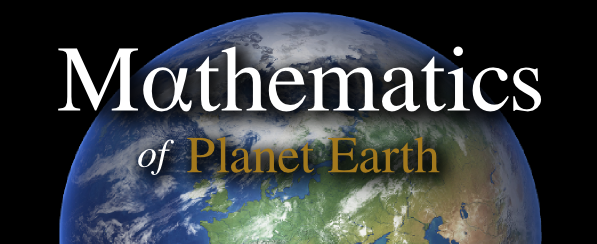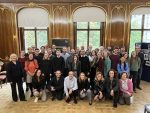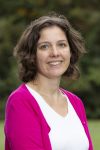A virtual summer school on ‘Attribution, causality, and decision-making in climate variability and change’, consisting of both lectures and practical sessions, will run from June 6-10, 2022. Topics will include:
• Event attribution
• Trend attribution
• Philosophical issues in attribution
• Causality
• Decision-making
The school is primarily aimed at MPE CDT graduate students but is open to a wider audience of scientists and scholars in mathematics and weather and climate science, including climate services. Scheduled activities are expected to occur between 10am and 5pm UK time, and will occur entirely online. The provisional schedule of lectures and practical sessions can be downloaded here. A more detailed syllabus, together with suggested background reading, will be provided later.
The lectures and practical sessions will be delivered by leading experts, including Aglaé Jézéquel (LMD/IPSL), Sebastian Sippel (ETH Zürich), Elisabeth Lloyd (Indiana), Marlene Kretschmer (Reading), Elena Saggioro (Reading), Dragana Bojovic (BSC), Raül Marcos (BSC), and Marta Terrado (BSC).
The school is co-sponsored by the World Climate Research Programme (WCRP) through its Lighthouse Activity ‘My Climate Risk’, and by the Walker Institute.
In order to benefit from the school, participants should have some basic background in weather and climate science, some knowledge of common statistical practices such as regression and uncertainty quantification, and some experience in scientific programming with either python or R.
We ask potential participants to indicate their interest by May 2nd, by completing this form. Successful applicants will be informed by Mid May and provided with joining information.
SYLLABUS FOR THE SCHOOL
MONDAY JUNE 6
Event attribution Aglaé Jézéquel
Concepts of extreme event attribution :
- How do we define the event?
- Counterfactual and factual worlds
- Storyline and risk-based approach
- Attributing impacts related to extreme events
- Compound events attribution
Trend attribution I Sebastian Sippel
Concepts of detection and attribution for long-term trends:
- Detection: Is there a change?
- Attribution: What is the reason for the change?
- Internal variability vs. forced response
- Separation of (forced) signal and noise
- Climate models as physics-based tools to identify an expected change signal (which observational changes will be tested against)
- “Fingerprinting” of individual forcings (in spatial, temporal, vertical and/or multi-variate climate patterns) and traditional attribution “recipe”
- Key attribution results (e.g., from IPCC AR6 WG1)
Logic of model confirmation Lisa Lloyd
- Varieties of ways that models might be supported
- Fit
- Variety of Fit
- Independent support for aspects of the model
- Variety of independent support
- Robustness
Role of values in attribution Lisa Lloyd
- Why values are always there
- Why that is not bad
- How to use values to help good science
- Tradeoffs of values in scientific investigation and practice
TUESDAY JUNE 7
Practical session on event attribution Aglaé Jézéquel
Simple case study of EEA – calculation of a risk ratio
Causality I Marlene Kretschmer
- Causal questions in climate science with a focus on teleconnections
- Association vs. causation
- The concept of causality in statistics: quantifying causal relationships from (observed) data
- Using causal networks to express scientific hypotheses
- Examples from climate science: common drivers, mediating pathways, direct and indirect effects, linear and non-linear causal effects
Trend attribution II Sebastian Sippel
“New approaches” to detection and attribution (e.g., at regional scales):
- Dynamical adjustment: Separation of thermodynamical vs. dynamical trends as a tool to assess causes of regional-scale trends
- Statistical learning approaches to identify (forced) signals from climate patterns (e.g., pattern filtering, infilling, and/or pattern recognition, …)
WEDNESDAY JUNE 8
Practical session on causality Elena Saggioro
Set of exercises on simple causal network structures and associated potential statistical pitfalls: common driver, mediators, indirect pathways, blocking pathways and non-linear causal effects.
THURSDAY JUNE 9
Causality II Marlene Kretschmer
- Conditioning on a common effect: an example from climate science
- Particular challenges and opportunities in the use of causal networks in scientific practice
- Outlook: causal discovery
Decision-making Aglaé Jézéquel
- How do we interact with stakeholders as climate scientists ?
- Interdisciplinarity with social sciences
- Climate services : definitions, objectives and limits
- Case study of extreme event attribution as a climate service
Practical session on decision-making Raül Marcos, Marta Terrado and Dragana Bojovic
- A journey from climate information to decision-making: a tale of two worlds?
FRIDAY JUNE 10
Decision-making I: Knowledge coproduction Dragana Bojovic
- Decision-making for climate change adaptation
- Involving stakeholders in decision-making
- Participatory methods
- Climate services and need for transdisciplinary approaches
Decision-making II: Success story Marta Terrado
- Coproduction of a climate service with a wine sector user
- MED-GOLD Dashboard: a decision-making tool for the wine sector (different time scales: historical, seasonal, projections)
- Translating skill to economic value, hit rate of the prediction: the weather roulette
Lecturers and Support Specialists – Biographies
Dragana Bojovic is a senior researcher at Barcelona Supercomputing Center – Earth Science Department, where she co-leads the Knowledge integration team. She applies interdisciplinary and transdisciplinary approaches to improve climate knowledge and coproduce climate services. She has been collaborating with scientists, policymakers, and communities from different parts of the world, supporting knowledge exchange to enhance resilience to climate and other environmental changes. She holds a PhD in Science and Management of Climate Change (Ca’Foscari University of Venice) and a MSc in Environmental Change and Management (Oxford University).
Aglaé Jézéquel is a researcher working at LMD in Paris. Her research interests include extreme event attribution, storylines, and climate services. Her work is interdisciplinary, between statistics of climate data and social sciences. She also teaches several classes at masters level, including a creative writing workshop on climate change in collaboration with a French writer.
Marlene Kretschmer is a postdoctoral researcher at the University of Reading. Before that she worked at the Potsdam Institute for Climate Impact Research in Germany where she received her PhD in climate physics. Her research focuses on identifying the large-scale atmospheric drivers of extreme weather and climate events, including dynamical stratosphere-troposphere coupling and its impacts for winter circulation and extremes. To address these issues, she is particularly interested in applying causal inference-based frameworks as well as novel statistical approaches from machine learning such as causal discovery algorithms. Moreover, she is keen on applying these new techniques to evaluate teleconnection processes in climate models and to improve sub-seasonal to seasonal (S2S) forecasting of extreme events.
Elisabeth A. Lloyd, a philosopher of science working on models in science and their confirmation in evolutionary biology, started studying climate science and how it uses models in 2005. Since then, she has worked on a variety of key issues involving modeling questions, including model confirmation and model application in the context of attribution, and is especially interested in the development of attribution methods and the social values they hold. She has held faculty positions at University of California, Berkeley, and is now a Distinguished Professor at the specialty department in her field at Indiana University. A few weeks ago she found out she was elected to the American Academy of Arts and Sciences.
Raül Marcos-Matamoros is a Serra Húnter lecturer in Meteorology at the Barcelona University and a fellow researcher at the Barcelona Supercomputing Center (BSC) – Earth Science Department. In the BSC he collaborates with the Climate Services team where he is involved in the verification of seasonal prediction models and the development of climate services in different sectors (agriculture, forest fire prevention, water resources and renewable energies). He also works in the interaction with stakeholders to promote the integration of climate predictions in their decision-making workflows. He holds a PhD in Physics (University of Barcelona) and a MsC in Meteorology.
Elena Saggioro is an interdisciplinary research fellow at the Walker Institute, and is completing her PhD in Mathematics of Planet Earth at the University of Reading. Her PhD research focused on applying a range of causal and Bayesian network methods to understanding the Southern Hemisphere stratosphere-troposphere coupling and its role in extending the predictability of large-scale tropospheric circulation variability. At the Walker Institute, she is exploring how causality and climate storylines can help in climate risk assessment and climate adaptation planning. Her work involves close engagement with a range of stakeholders, including national governments and public bodies in the UK and overseas.
Sebastian Sippel’s key research interests include improving understanding of climate variability, extremes, and their changes at global and regional scales, including land-atmosphere interactions and changes in ecosystem carbon cycling. Sebastian uses statistical learning techniques with a focus on identifying forced changes and internally generated variability. Sebastian works as a Senior Scientist (“Oberassistent”) and Lecturer in the Climate Physics group at ETH Zurich. Sebastian’s PhD research was on “Climate extremes and their impact on ecosystem-atmosphere interactions” at the Max Planck Institute for Biogeochemistry in Jena, Germany. Before that, he studied environmental sciences with a focus on environmental physics at Bayreuth University, Germany; with a year abroad in Oxford with studies on Environmental Change and Management.
Marta Terrado is a senior researcher and science communicator at the Barcelona Supercomputing Center – Earth Sciences department, where she co-leads the Knowledge Integration team. Applying various communication and dissemination tools and activities, she facilitates knowledge and technology exchange on climate services and air quality services to stakeholders from different sectors and governance levels to support their adaptation to climate change. She is an Environmental Scientist with a PhD in Earth Sciences (University of Barcelona), a MSc in Geographical Information Systems and a Postgraduate Degree in Science Communication.
Timetable
| Monday June 6th | Tuesday June 7th | Wednesday June 8th | Thursday June 9th | Friday June 10th | |
| BST 0940 UTC 0840 | Opening of School | ||||
| BST 1000 UTC 0900 | Event attribution Aglaé Jézéquel | Practical session on event attribution Aglaé Jézéquel | Practical session on causality Elena Saggioro | Causality II Marlene Kretschmer | Decision-making I BSC Team |
| BST 1100 UTC 1000 | Trend attribution I Sebastian Sippel | Practical session on event attribution Aglaé Jézéquel – continued | Practical session on causality Elena Saggioro – continued | Decision-making Aglaé Jézéquel | Decision-making II BSC Team |
| BST 1400 UTC 1300 | Logic of model confirmation Lisa Lloyd | Causality I Marlene Kretschmer | Practical session on decision-making BSC Team | Reflections from participants | |
| BST 1500 UTC 1400 | Role of values in attribution Lisa Lloyd | Trend attribution II Sebastian Sippel | Practical session on decision-making BSC Team– continued | Close at BST 1500 |
BSC Team = Dragana Bojovic, Raül Marcos, Marta Terrado






